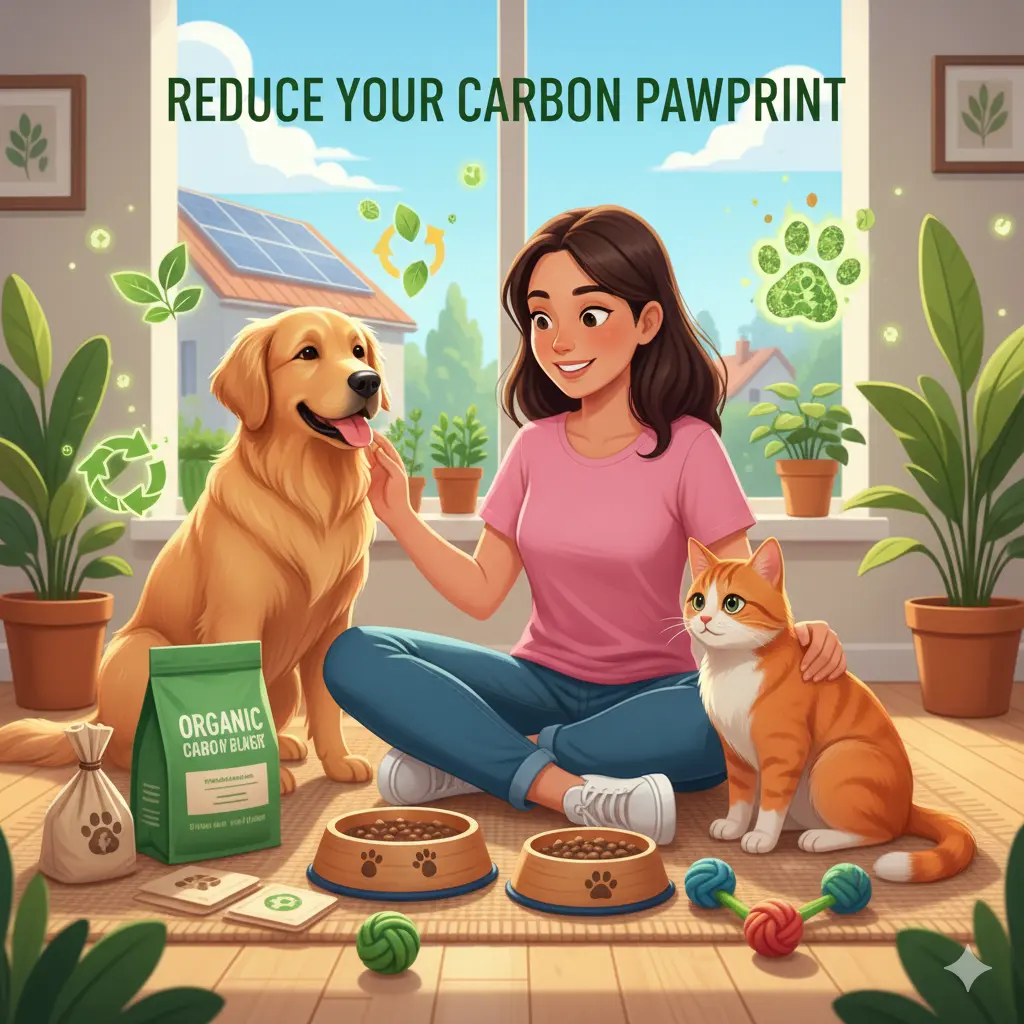As more pet parents in India embrace sustainable living, the conversation is expanding beyond human habits — it’s now about our furry friends too. Just like humans, pets have a carbon footprint (or rather, a carbon pawprint). From their food and toys to grooming and waste, every aspect of a pet’s lifestyle can impact the environment. Thankfully, small, mindful choices can make a big difference. Eco-friendly pet parenting is not just a trend; it’s a movement toward building a cleaner, greener future for both pets and people.
Why Sustainability Matters in Pet Care
India’s pet population has grown rapidly over the past decade, with more than 30 million pets calling the country home. While this signals love and compassion for animals, it also means more waste, packaging, and carbon emissions from pet products. Choosing eco-conscious brands and habits helps reduce environmental harm while promoting healthier lifestyles for pets.
Natural, sustainable choices — like PawMa’s Kitchen’s home-baked, preservative-free snacks — are setting a new standard for responsible pet ownership. These small acts, multiplied by millions of pet parents, can significantly lower the environmental impact of the pet industry.
Sustainable Food Choices for Pets
Opt for Locally Made, Natural Snacks
Locally made pet snacks, such as those from PawMa’s Kitchen, use fresh, regional ingredients and avoid industrial-scale processing. This reduces transportation emissions and supports small businesses. By choosing preservative-free and human-grade treats, you’re minimizing chemical waste while ensuring your pet’s diet remains nutritious and planet-friendly.
Reduce Meat-Based Waste
While pets need protein, excessive meat-based diets can strain environmental resources. Incorporating vegetable-based ingredients — such as pumpkin, oats, or carrots — in snacks can help balance nutrition while reducing demand on livestock farming, one of the biggest contributors to greenhouse gases.
Avoid Overfeeding and Food Waste
Pet food waste often ends up in landfills, contributing to methane emissions. Serve measured portions and store snacks properly to extend shelf life naturally. Every uneaten biscuit avoided is a small step toward sustainability.
Eco-Friendly Pet Accessories
Choose Sustainable Materials
Opt for collars, toys, and beds made from recycled or biodegradable materials like hemp, bamboo, or organic cotton. These alternatives reduce plastic pollution and are gentler on your pet’s skin.
Repair and Reuse
Before tossing out old leashes or toys, see if they can be repaired or repurposed. A worn-out rope toy can be turned into a tug rope, and old blankets make great pet bedding.
Support Ethical Brands
Brands committed to sustainable sourcing and eco-friendly packaging — much like PawMa’s Kitchen — are leading the green revolution in pet care. Supporting them helps expand access to sustainable options across the country.
Green Grooming and Cleaning
Switch to Natural Grooming Products
Many shampoos and cleaning agents contain chemicals that can harm both pets and the environment. Instead, choose organic grooming products free from parabens, sulfates, and artificial fragrances. They’re safer for your pet’s skin and minimize water pollution.
Water-Saving Grooming Habits
Shorter baths, using water-efficient sprayers, or dry-shampoo options can help save liters of water per session. Small adjustments in grooming routines make a meaningful ecological difference over time.
Managing Pet Waste Responsibly
Composting and Biodegradable Bags
Pet waste contributes to landfill buildup and groundwater contamination. Use biodegradable poop bags made from cornstarch or compostable materials instead of plastic ones. Some urban communities are even introducing pet composting systems — an innovation India is gradually embracing.
Cat Litter Alternatives
Switching to eco-friendly litter made from recycled paper, wood shavings, or coconut husks can drastically reduce non-biodegradable waste. It’s cleaner, odor-free, and better for the planet.
Eco-Friendly Pet Parenting at Home
Reduce, Reuse, Recycle — Even for Pets
Repurpose glass jars for treat storage, reuse delivery boxes for toy storage, and recycle old bedding into comfy resting spots. Creating a zero-waste pet corner at home encourages mindfulness and sets an example for others.
Energy-Efficient Living
Keep pet spaces well-ventilated to reduce the need for air conditioning. Use solar-powered outdoor lighting for pets who spend time in gardens or balconies. The less electricity consumed, the smaller your household carbon footprint — pets included.
DIY Pet Toys and Treats
Making your own pet treats (inspired by PawMa’s Kitchen) using local ingredients not only saves packaging waste but also ensures freshness. DIY toys — like twisted fabric ropes or upcycled tennis balls — reduce reliance on mass-produced plastic toys.
The Role of Eco-Conscious Brands
Sustainability in pet care starts with mindful consumers but flourishes through responsible brands. PawMa’s Kitchen is an inspiring example — crafting home-baked, preservative-free snacks using natural ingredients and eco-friendly packaging. The brand represents a new generation of pet businesses that combine health, taste, and sustainability.
Such companies help bridge the gap between love for pets and love for the planet. By supporting eco-friendly brands, you invest in a cleaner supply chain, reduced waste, and healthier pets.
Teaching a New Generation of Pet Parents
Raising awareness about sustainable pet care creates long-term change. Sharing eco-friendly practices with friends, family, or online communities helps others take simple steps — like choosing compostable bags or preservative-free treats. Sustainability is contagious when it’s practiced with purpose and love.
Simple Sustainable Habits to Start Today
- Switch to locally made snacks like PawMa’s Kitchen’s preservative-free treats.
- Use recycled toys and biodegradable waste bags.
- Reuse containers for food storage.
- Choose natural grooming products and limit water use.
- Spread awareness about green pet parenting.
Conclusion
Eco-friendly pet parenting isn’t about perfection — it’s about progress and purpose. Every conscious choice, from the snacks you buy to how you manage waste, contributes to a healthier planet. By embracing sustainable habits and supporting eco-conscious brands like PawMa’s Kitchen, you’re not just caring for your pet — you’re helping shape a greener, more compassionate world for all living beings.
Together, we can ensure that every wag, purr, and pawprint leaves behind not pollution, but love. 🌱🐾



